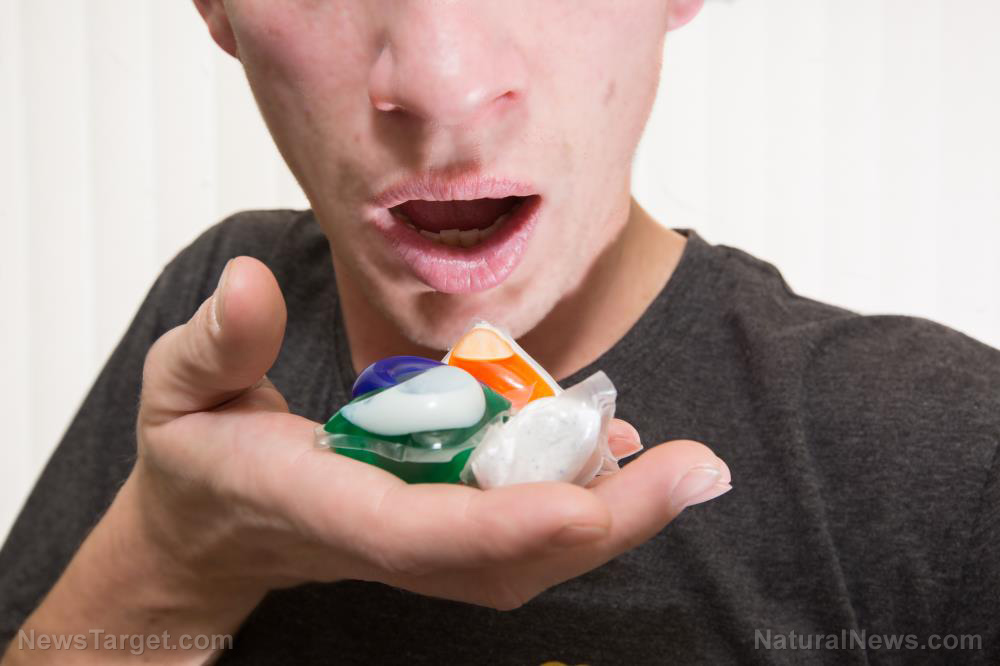Scientists design nanoparticles that can help heal stroke-related brain damage
03/15/2020 / By Franz Walker

A stroke is one of the scariest things that can happen to anyone. Even if it doesn’t always lead to death, sufferers can live with permanent brain damage. Now, a team of scientists from various institutes around the world are looking into nanoparticles made of selenium as a possible way to help heal brain damage from strokes.
According to the recent study, selenium nanoparticles can stop certain molecular mechanisms that are the main cause of the loss of brain cells after a stroke. By using these nanoparticles, the researchers hope to not only limit the amount of brain damage suffered by stroke patients, but even prevent strokes from happening in the first place.
Selenium can suppress inflammation that triggers stroke
Strokes are classified as ischemic and hemorrhagic. The former is the more common type, representing 87 percent of all recorded cases of stroke. An ischemic stroke occurs when a blood vessel connected to the brain gets narrow or blocked, reducing the amount of oxygen-rich blood flowing into the brain. The affected parts of the brain suffer oxidative tissue damage due to the limited blood supply.
One of the main drivers of brain damage is the inflammation that the cells experience due to the lack of blood. Inflammation causes fluid pressure to build up inside the brain, which leads to stroke.
“This stroke-induced brain inflammation can cause excessive accumulation of fluid, which results in elevation of intracranial pressure (pressure inside the skull) and the clinical symptoms of a stroke,” stated research team member Alireza Mashaghi from the Netherlands’s Leiden University.
The study reports that selenium can suppress this stroke-causing inflammation. The element has been shown to affect the metabolism of nerve cells in a way that stops the inflammation. By suppressing the inflammation, selenium can provide a neuroprotective effect, possibly preventing the stroke from taking place.
Selenium targets only affected regions
One of the reasons the scientists are looking into selenium is that, in their tests, the element appeared to target only the affected regions of the brain. This is important as any medicines that can inadvertently effect healthy parts of the brain can increase the risk of negative side effects and brain damage.
“The designed nanoparticles are unique because of the neuroprotective effect and their safety. They are smart and can sense and target ischemic brain regions,” said Mashaghi. “These nanoparticles are therefore advantageous over conventional drugs. They can be “programmed” to specifically target the affected brain areas, while regular drugs often get distributed all over the body and contaminate all organs.”
Currently, development on these selenium nanoparticles are still at an experimental stage. So far, the team has only tested them on brain cells from rats.
Natural therapies for stroke-related damage
While new developments in healing stroke-related damage are ongoing, there already exist a number of natural methods that can help deal with this condition. Similar to selenium, omega-3 fatty acids are also known to help suppress brain cell inflammation.
Vitamin E is also a good nutrient that helps sufferers deal with the effects of a stroke. Instead of addressing inflammation, however, vitamin E helps reduce the amount of glutamate, a chemical that gets released in large quantities in the brain after a stroke. While glutamate normally helps in memory development, abnormally large amounts of it can trigger a cascade of reactions that eventually lead to the death of brain cells.
More importantly, both omega-3s and vitamin E can be obtained from natural sources and simply be added to a balanced diet.
Selenium, on the other hand, must be manufactured into nanoparticles. While selenium does exist in food and is considered a nutrient, excessive consumption can lead to selenosis, which causes hair loss, fatigue, irritability and foul breath. Therapy with selenium nanoparticles will likely require more invasive techniques to avoid this.
Sources include:
Tagged Under: brain damage, brain health, cognitive function, disease treatments, future science, health science, ischemic stroke, medical science, medical tech, nanoparticles, natural cures, nutrients, omega 3, pain relief, prevention, research, selenium, stroke, vitamin E
RECENT NEWS & ARTICLES
BrainDamaged.News is a fact-based public education website published by Brain Damaged News Features, LLC.
All content copyright © 2018 by Brain Damaged News Features, LLC.
Contact Us with Tips or Corrections
All trademarks, registered trademarks and servicemarks mentioned on this site are the property of their respective owners.

















